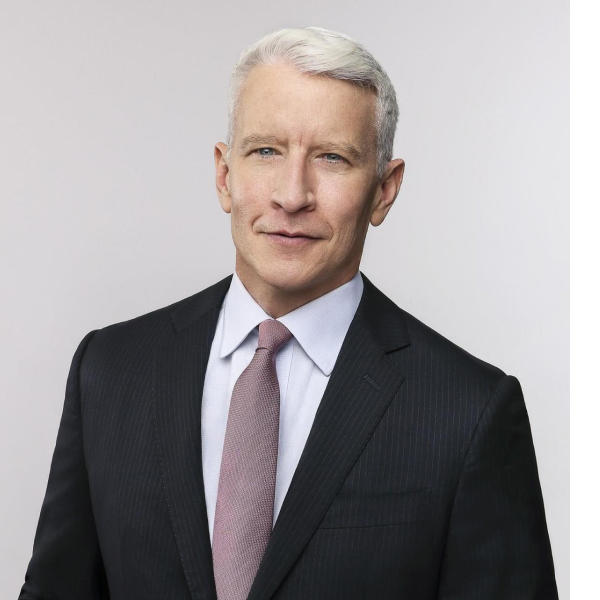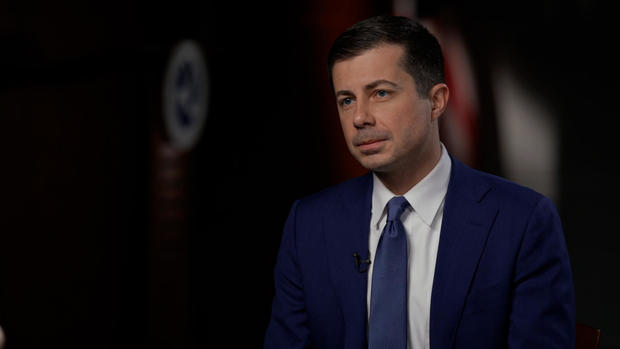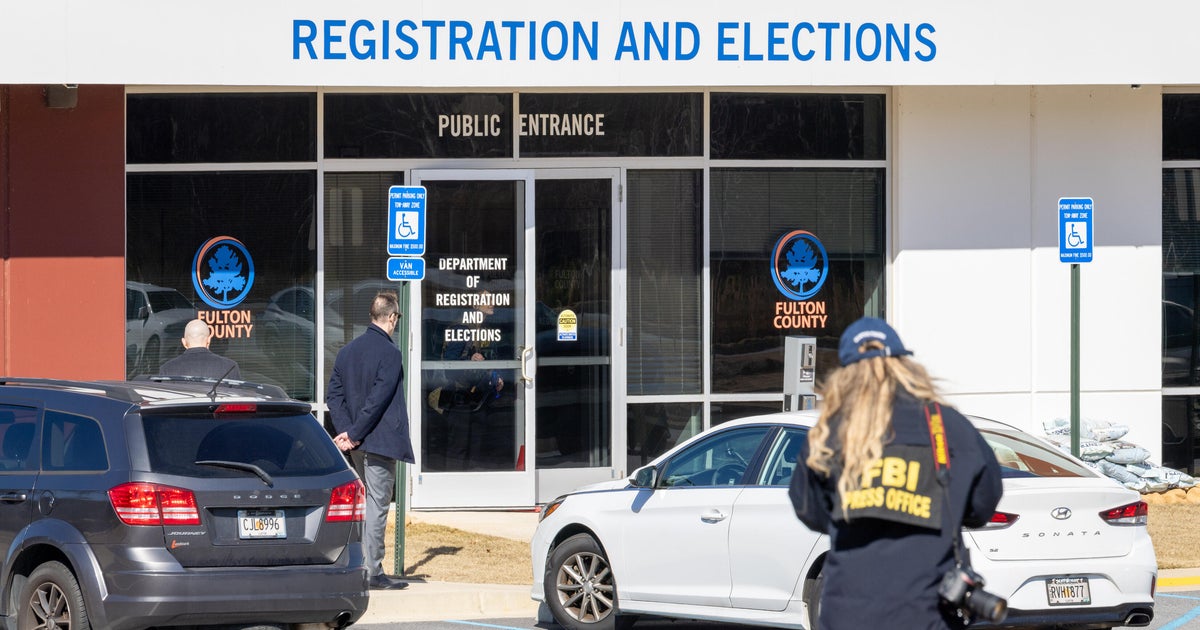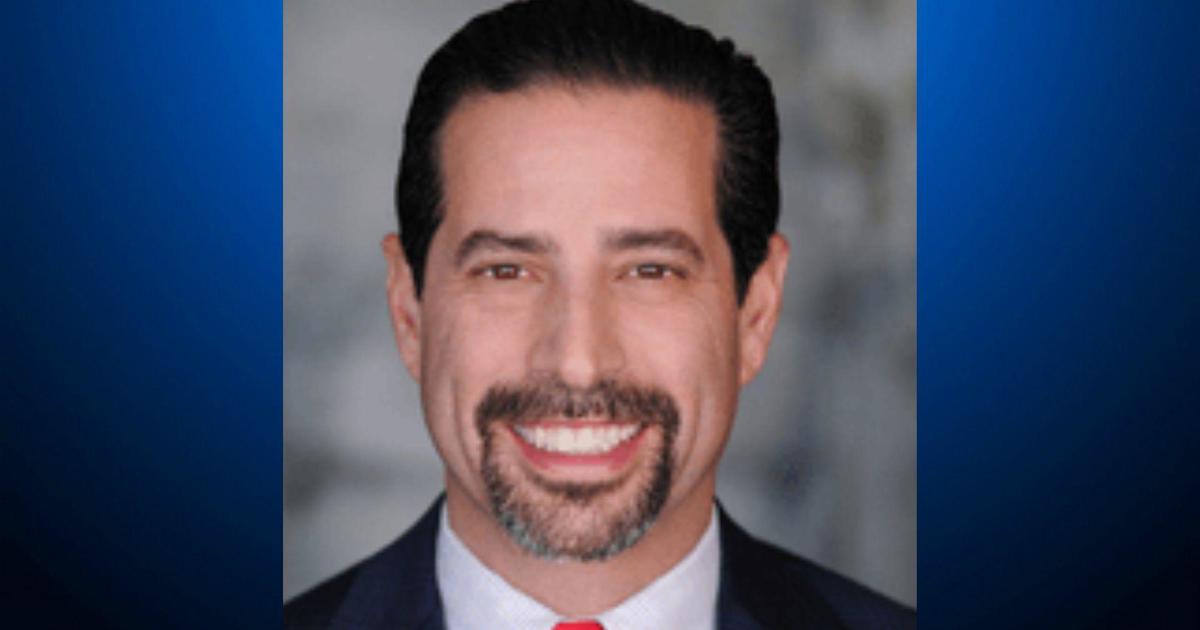Secretary Pete Buttigieg and the $560 billion investment in America's transportation infrastructure
Three years ago, Pete Buttigieg was the mayor of South Bend, Indiana, a city with only about 160 traffic lights. Today "Mayor Pete" is "Secretary Pete," head of the United States Department of Transportation. Thanks to the Bipartisan Infrastructure Law passed last year, he's overseeing one of the most significant investments in America's bridges, roads and rails in more than half a century.
Buttigieg is 40 years old, a Harvard graduate, Rhodes Scholar, and former Navy Reserve officer who ran for the Democratic presidential nomination in 2020. Now he's dealing with a pandemic-related supply chain crisis and trying to ensure that hundreds of billions of taxpayer dollars are well-spent on aging transportation systems in desperate need of repair.
At about 6:30 a.m. on January 28, this bridge in Pittsburgh, Pennsylvania collapsed while a bus and some cars were driving across it. No one was killed, but several people were injured. Federal investigators are trying to understand why safety inspectors hadn't warned that a collapse was imminent.
Anderson Cooper: When somebody's driving over a bridge, should they feel confident?
Pete Buttigieg: Yeah. I mean, we have to make sure that it's safe. There's inspection standards that we set federally. But-- but here's the issue. If a bridge is deteriorating-- you're gonna feel the consequences of that because in order to keep it safe it might have to be closed.
42% of America's bridges are at least 50 years old, and more than 7% are considered "structurally deficient," including one not far from Secretary Pete Buttigieg's office in Washington, D.C.
Anderson Cooper: So this does not look great.
Pete Buttigieg: I mean, look at it, right? It-- it tells a story right there. we're right by-- you know-- a thriving economic area in the nation's capital, and you got literally bits of rust coming off-- pipes and the underside of our bridge. Usually--
Anderson Cooper: That's actually from-- from that?
Pete Buttigieg: Yeah, I think so. I think that used to be this bridge. (LAUGH)
When grading the overall state of this country's infrastructure, the American Society of Civil Engineers recently gave the U.S. a C-minus.
Anderson Cooper: How is it possible that a country like the United States gets a C-minus on infrastructure?
Pete Buttigieg: Well, you get what you pay for. And for pretty much as long as I've been alive, our country has been under-investing in public things, for a long time-- everybody here in Washington said, "We gotta do this," or, "We're gonna do this," It's finally happened But we-- we got a lotta time to make up for.
The bipartisan infrastructure bill signed into law by President Biden in November guarantees at least $850 billion of spending over the next five years. There's $55 billion to help communities remove lead pipes and deliver clean drinking water, $65 billion to expand broadband internet service and make it more affordable, and another $65 billion to upgrade the nation's power grid. Many federal agencies are involved, but Pete Buttigieg's Department of Transportation will be the largest recipient of funds, distributing more than $560 billion over five years to improve everything from tunnels, bridges, and roads to mass transit, ports, and airports.
Anderson Cooper: When was the last time that the country invested this amount of money in infrastructure?
Pete Buttigieg: When it comes to roads and bridges, we haven't invested at this level since the Eisenhower administration, since they built the interstate highway system in the first place.
Anderson Cooper: What are people going to see different in their lives or in their communities because of this investment?
Pete Buttigieg: I think one of the first things you're gonna notice is accelerated work on roads and bridges. not just the big, famous bridges in our biggest cities. This is thousands of bridges around the country.
One of the many things Pennsylvania will do with its infrastructure money is rebuild that bridge that collapsed in Pittsburgh. And Washington D.C. plans to fix the "H street" bridge we saw near Union Station. But in many cases, it's too early to know exactly which projects will be funded. That's because some of the money will be awarded by Buttigieg and his staff to communities that will compete for discretionary grants. But more money is being sent directly to the states, where governors and local leaders will decide how to spend it.
Anderson Cooper: In a lot of communities, when they get money, their emphasis is on building new roads. You're trying to emphasize fixing existing roads. That's not always popular.
Pete Buttigieg: There's always a bias toward the shiny, new thing. But the truth is, as a country, we've gotta take care of what we've got.
Anderson Cooper: In earlier versions of the bill there were provisions that would've required states to dedicate money to repairing freeways before building new ones. Those provisions were taken out.
Pete Buttigieg: The requirements aren't there, but it's still a good idea. And we're still going to encourage it.
Anderson Cooper: There's research showing that historically more of the grant money goes to states that voted for the party in power. Under Obama it went to blue states, under President Trump it went to-- to red states. Is that gonna happen again?
Pete Buttigieg: We're really focused on taking those party politics out of the picture
Anderson Cooper: But no administration says, "Yeah, that's what we're doing." But historically that is what happens.
Pete Buttigieg: But look at what we're actually doing. So this last round of discretionary grants, for example, $1 billion that I had the final sign off on. We actually went over the congressional requirement for how much goes to rural areas. Rural areas aren't known for supporting my political party. But they-- (LAUGH) they do have a lotta need. And so we're funding good projects there.
Moody's analytics estimates the infrastructure law will create 872,000 new jobs by late 2025. Projects long on the drawing board may finally happen.
For example: the Hudson River train tunnel that runs between New York and New Jersey is a crucial artery that local leaders have been trying to upgrade for years.
Pete Buttigieg: It was absolute state-of-the-art, best-construction technology… 110 years ago. (LAUGH)
Anderson Cooper: In nineteen-- in 1910.
Pete Buttigieg: Yeah. And we're going deep into the 21st century still depending on that hundred-year-old infrastructure.
The tunnel's so badly damaged crews have to work on it at night so pieces of it don't fall on the tracks during the day. If an expected infrastructure grant comes through, construction of a new tunnel could finally begin next year.
Kentucky Governor Andy Beshear has said he'd like to use infrastructure money to help build a companion to the congested Brent Spence Bridge that connects Kentucky and Ohio.
Airports all over the country will be receiving money this year to upgrade their runways and terminals – LAX will get $79 million, Chicago O'Hare 74 million, and Atlanta's international airport $92 million.
Secretary Buttigieg plans to use some of the infrastructure money to revitalize low-income black neighborhoods that were divided or damaged by the construction of interstate highways. But Florida Governor Ron DeSantis has expressed some skepticism about that.
Ron DeSantis at press conference: I mean, I heard some stuff, some weird stuff from the Secretary of Transportation trying to make this about social issues. To me, a road is a road… so I mean I don't know, I'd have to take a look at that.
Anderson Cooper: Is a road a road?
Pete Buttigieg: Of course a road is a road. But if a road was built in such a way that it removed, destroyed, or divided a community of color, that's something we've gotta deal with–
Anderson Cooper: What do you do about it? I mean, you're not gonna reroute a highway.
Pete Buttigieg: Well, you might. if federal dollars were used to divide a neighborhood or a city, federal dollars should be used to reconnect it. Now, that doesn't always mean the highway has to go completely. Maybe you gotta bridge over it or around it, or introduce transit or different options. But the point is, transportation should always connect, never divide.
The passage of the infrastructure bill in the Senate was the result of some serious bridge-building. Five Republican and five Democratic senators negotiated the deal and convinced their colleagues to support it. In the House of Representatives, 200 Republicans and six Democrats voted against the legislation, but that didn't stop many of them from later claiming credit for the money it gave to their districts.
Anderson Cooper: When you hear a member of Congress who did not vote for this money turning around and taking credit (LAUGH) for the money that is coming to their district--
Pete Buttigieg: It's an amazing thing, isn't it? As irritating as that can be, as long as the project gets done, as long as it benefits the people who live there-- the politics are what they are.
If you hadn't noticed, Pete Buttigieg is, himself, a very skilled politician. In 2019, when he announced he was running for the Democratic presidential nomination, most people didn't know him and couldn't pronounce his name.
But they quickly learned.
He led the field in Iowa along with Bernie Sanders and finished a close second in New Hampshire. When he dropped out of the race in March, 2020, he endorsed Joe Biden, who later offered him a cabinet post. When he was sworn in, he became the first openly gay cabinet secretary to be confirmed by Congress.
Anderson Cooper: Did you think about it on that day?
Pete Buttigieg: Yeah. Yeah, I mean, it was hard not to think about it. It wasn't that long ago that being gay meant that you couldn't have any job in the federal government-- never mind being a soldier or a cabinet officer. You couldn't be a bookkeeper. You could lose your job--
Anderson Cooper: And you could be fired if you were.
Pete Buttigieg: And many people were. And to know now that-- that-- I can be who I am and have this job, I-- I know what that means for a lotta people.
In August 2021, Buttigieg and his husband Chasten adopted newborn twins, a boy and a girl.
The twins were born prematurely and their son, Gus, spent time in intensive care. But as supply chain problems mounted last fall, Buttigieg came under attack for taking parental leave during a crisis.
Tucker Carlson on Fox News: Pete Buttigieg has been on leave from his job since August after adopting a child, paternity leave, they call it, trying to figure out how to breastfeed, no word on how that went.
Anderson Cooper: Were you surprised by-- by that criticism?
Pete Buttigieg: A little bit. Yeah. Because some of it came from corners that-- talk a lot about family values. One thing-- I wanted to make sure people understood was that, like so many parents have to do, I took care of my kids and I took care of business.
His agency has so far made hundreds of millions of dollars available to improve ports across the country, but supply chain problems remain a major challenge.
Anderson Cooper: Can you say when the supply chain issue will be solved?
Pete Buttigieg: When the pandemic ends it'll get a lot better. But It's gonna take years to have the kind of transportation infrastructure that we really need to weather the next shock, whether it's a pandemic or who knows, a cyber-attack certainly more extreme weather related to climate change. we've got to get more resilient for that.
The infrastructure law includes an unprecedented $66 billion over five years for Amtrak to improve its existing rails and tunnels and expand its service. There's also $5 billion to help build a network of charging stations across the country for electric vehicles. But most of the transportation money is going to roads, highways, and bridges.
Anderson Cooper: There's folks who have looked at-- at the infrastructure bill and don't really see it having a net positive impact on climate. you know, all the concrete that's being made, steel that's being made, all that is a huge-- release of carbon
Pete Buttigieg: That's why we gotta spend these dollars in a smart way, right? the more we get people on to transit, give 'em good transit options, the less they have to drive. And then when they are driving, the more we get 'em in electric vehicles, that's good for the climate too.
Giving infrastructure money to local leaders all over the country could prove to be very good for Pete Buttigieg should he decide to run for national office again. But it will take many years to complete some of these projects. And before there are new bridges and improved roads, there will be lots of closed lanes and traffic jams. We were curious what the american society of civil engineers – the group that gave the nation's current infrastructure a C-minus – thought the infusion of federal funds would accomplish. One of their top officials told us it was a very positive development but still only about half of what's needed.
Anderson Cooper: She says that she hopes that the infrastructure grade seven years from now would be a B. With all the money that's being spent still only a B. Have you ever gotten a B in your life? You s-- you strike me as the kinda guy who hasn't gotten a lotta Bs in your life--
Pete Buttigieg: Look-- you know, we're always shooting for A plus. But this isn't like building a house. This is building a country, literally. And some of these things do take time. Each passing year you'll see more results, and it is gonna take a while.
Produced by Andy Court and Evie Salomon. Broadcast associates, Annabelle Hanflig, Eliza Costas and Mabel Kabani. Edited by Robert Zimet.







